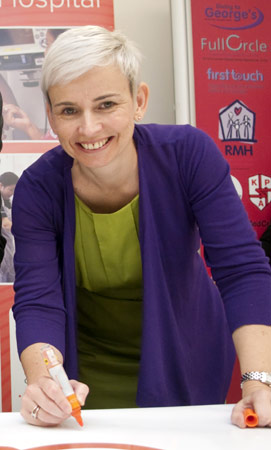Business Culture: Women in Business
Despite the value that citizens place on egalitarianism, the United Kingdom is still very class conscious. The upper class is primarily made up of landed gentry, many of whom have titles or at least an impressive lineage that can be traced back to nobility. The middle class consists of salaried professionals and the educational elite who largely support the Conservative Party. The working class tends to draw hourly wages, favor trade unions, and vote for the Labour Party. Women in the upper and middle classes often are treated with greater respect than women in the working class, but all women enjoy equal rights under the law. The United Kingdom has long been a world leader in the struggle for gender equality and consistently ranks highly on global indices of the subject. Still, women have a ways to go before total gender equality is reached. As a visiting businesswoman, you will be assumed to be part of the middle class, and will typically be treated on par with men of your status.
Public Presence
Women in the United Kingdom share virtually every setting with men. Whether your travels take you to London, Edinburgh, Belfast, the Dales, or Wales, you will see women sharing space with men and interacting with them as equals. Men and women sit and stand together on crowded buses, trains, or in the tube. They yell and scream side-by-side during the local football and rugby matches and then afterwards unwind from the excitement together in a restaurant or pub. Both genders stand in the same queues at the local post office and share the same stretch of sand on holidays in Brighton. In short, men and women in the UK move through life together. Notable exceptions to this rule include certain private schools that cater to only one gender, same-sex sports teams, and certain religious sites such as mosques and Orthodox synagogues where men and women have separate areas for prayer.
Women in the United Kingdom also have the freedom to dress in almost any manner they choose. On special occasions and for formal events, women often select stylish dresses with coordinating coats or wraps. Women in the office environment wear anything from slacks and a colorful blouse to a business suit, depending on the industry and the particular culture of the workplace. For casual shopping, jeans or slacks are common, accompanied by an attractive top or t-shirt. Parts of the UK are known for their changeable weather, so you might want to bring along clothing that you can wear in layers. Business dress tends to be formal and understated, but stylish, so bring tailored skirt-suits that fall to the knee, paired with elegant blouses, all in conservative cuts. Complete your outfit with stocking and classic heels, and understated but high-quality jewelry. Business dress in the technology sector leans toward casual pants and sweaters, while in the creative industries women wear edgy, fashion-forward ensembles.
Women in the United Kingdom are free to have companions of either gender, although among certain ethnic groups, family and religious tradition can play a role in whom a woman is allowed to socialize with. Women can also move about, dine in a restaurant, or drink in a pub alone if they wish, without any social stigma. As a visitor to the country, you will have the freedom to travel anywhere you choose, either alone or with the companions of your choice.
Personal Interaction
People in the United Kingdom usually keep around two to three feet of space between themselves during conversation. When being introduced to a man, it is customary for women to offer their hand first for a handshake. Although friends and family occasionally stand a bit closer and frequently touch each other on the arms or shoulders when chatting, additional touch beyond the initial handshake is rare in the business environment. You'll want to make direct eye contact during a conversation, but avoid staring at the other person.
Women are viewed as people entitled to their own ideas, opinions, and emotions. Women speak to men as equals, and you will be expected to do so as well. In a business meeting or a social gathering you will be expected to listen to, but not necessarily accept, the opinion of a man unless his reasoning is sound. Likewise, you should feel free to express your own ideas and persuade others to your point of view. Even though women are still often expected to be in charge of most of the cooking, cleaning, and childcare in the home, they are also seen as valued members of the workforce.
Autonomy and Leadership
UK women can travel freely, both domestically and internationally, as well as own businesses and property. However, they still battle wage inequality and are underrepresented in politics. During your visit, you should have no trouble with gender discrimination, and should feel free to negotiate, sign contracts, supervise, and delegate responsibility as your position demands.
Article written for World Trade Press by John E. Roper.
Copyright © 1993—2024 World Trade Press. All rights reserved.

 United Kingdom
United Kingdom 
